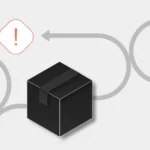Inheritance Scam
An inheritance scam is a type of fraud where scammers claim that you have been named as a beneficiary in a will or have inherited money or property from a distant relative or stranger. The goal of these scams is to deceive you into providing personal information, paying fees or taxes upfront, or giving out your bank account details to receive the supposedly inherited funds.
Types of Inheritance Scams
- The Distant Relative: Scammers claim to be a long-lost relative who has left you a significant inheritance. They may use social media or other platforms to find information about you and create a convincing backstory.
- Fake lottery scam: The scammer will claim that you have won a lottery that you never entered. They will often ask for your personal information or money in order to claim your prize.
- The Charitable Donation: Scammers pose as representatives of a charity or non-profit organization and claim that you have inherited or been donated a large sum of money. They request your personal and financial information to transfer the funds.
- Fake lawyer or banker scam: The scammer will pose as a lawyer or banker and claim that you have inherited money from a distant relative. They will often ask for your personal information or money in order to process the inheritance.
- Fake government scam: The scammer will claim that you owe money to the government and that you need to pay it immediately. They will often ask for your personal information or money in order to pay off the debt.
Prevention
- Be skeptical: Question the validity of any unexpected communication about inheritances or winnings.
- Verify the source: Research the person or organization contacting you and confirm their authenticity.
- Protect personal information: Do not provide personal or financial information to anyone you don’t know or trust.
- Don’t pay upfront fees: Legitimate inheritances or winnings generally do not require upfront payment.
- Seek professional advice: Consult with a lawyer or financial advisor before taking any action.
Q&A
Q: How do scammers find my information?
A: Scammers use various techniques to gather information about potential victims, such as searching social media profiles, online directories, obituaries, and public records.
Q: Can I trust an email or letter about an inheritance?
A: Always be cautious with unsolicited emails or letters about inheritances. Verify the sender’s authenticity and consider seeking professional advice.
Q: What should I do if I’ve provided my personal information in response to a scam?
A: Contact your financial institution, change your passwords, and monitor your accounts for suspicious activity.
Q: How do I know if an inheritance is legitimate?
A: There are a few things you can do to check the legitimacy of an inheritance. First, you can contact the company or organization that the scammer claimed to be from to verify the inheritance. You can also check the probate records in the county where the deceased person lived to see if the inheritance is listed.
Q: What should I do if I think I’ve been the victim of an inheritance scam?
A: If you think you’ve been the victim of an inheritance scam, there are a few things you should do. First, you should report the scam to the Federal Trade Commission (FTC). You can do this online or by calling 1-877-FTC-HELP. You should also file a complaint with your state attorney general’s office.
Q: How can I protect myself from inheritance scams in the future?
A: There are a few things you can do to protect yourself from inheritance scams in the future. First, you should be suspicious of any unsolicited messages or phone calls claiming that you have inherited money. Second, you should never give out any personal information or money to someone you do not know and trust. Third, you should never click on any links in messages or emails from people you do not know.
Reporting
If you suspect that you have been a target of an inheritance scam, report the scam to the following authorities:








